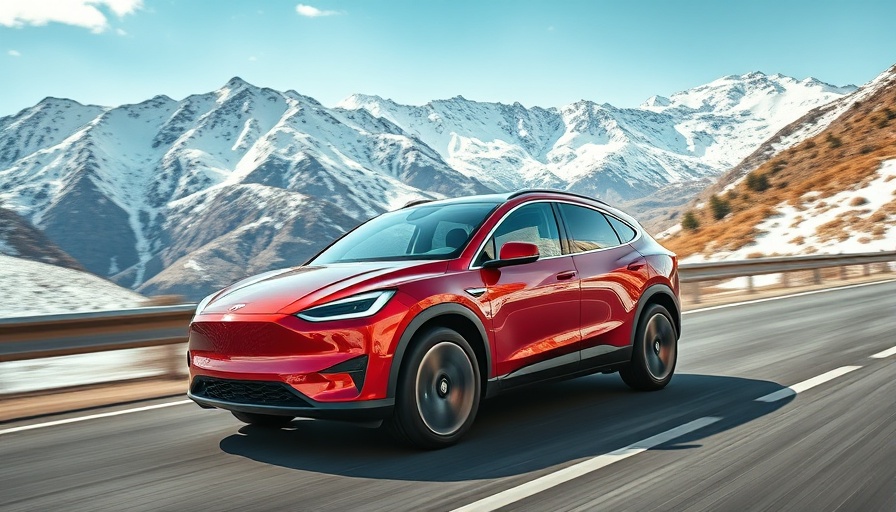
China’s Strategic Use of Tesla's ADAS License in Trade Dynamics
As tensions rise between the U.S. and China, the automotive landscape is becoming a battleground for influence and strategy. Recent reports suggest that China might leverage Tesla’s Advanced Driver Assistance Systems (ADAS) licensing as part of its broader trade strategy. This maneuver points to a significant shift in how international relations may dictate corporate operations.
The Impact on Tesla's Operations
If the Chinese government delays or retracts Tesla's Full Self-Driving (FSD) Beta license, it would be a formidable setback for the electric vehicle pioneer. Although Tesla has positioned itself as a leader in the global electric vehicle (EV) market, bringing its technology to scale in China has been pivotal. This possible delay coincides with China’s rapid advancements in domestic brands and their respective autonomous vehicle projects.
The Broader Context: U.S.-China Relations Affecting Trade and Tech
The ongoing U.S.-China trade war, characterized by tariffs and countermeasures, may have more significant implications for Tesla than initially anticipated. Musk's connections to both governments could play a critical role. The interplay between these diplomatic channels and Tesla’s market access could determine how the company navigates its operations in China.
Elon Musk's Dual Role in Diplomatic Maneuvering
Elon Musk is not just the head of Tesla but also a uniquely positioned figure whose relations with leaders like Donald Trump and Xi Jinping are crucial to Tesla's strategy. His engagements with Chinese officials have led to favorable partnerships, such as the establishment of Tesla's Shanghai Gigafactory. Yet, the current geopolitical atmosphere suggests a need for negotiation and careful maneuvering as Chinese domestic companies amplify their own advanced driver assistance technologies.
The Domestic Challenge: Rising Competitors
As domestic brands in China rapidly innovate and scale, Tesla’s market share could be increasingly threatened. With companies such as BYD and NIO stepping up to the plate with cutting-edge EVs, Tesla must adapt to a shifting landscape where homegrown technologies may soon rival its offerings.
Future Implications for Tesla's FSD Capabilities
News of potential delays in Tesla’s FSD Beta licensing raises questions about the future of its technology in a fiercely competitive environment. While Tesla's decision-making remains vital in this landscape, how the outcomes of these trade negotiations impact its technology rollout will be crucial for stakeholders, including dealership principals and operations directors.
Call to Action: Stay Informed and Adapt
As the landscape shifts, dealership principals and GMs must stay ahead by understanding the nuances of this evolving situation. With potential impacts on market conditions and financing options for consumers, now is the time to explore how these dynamics affect used car financing rates and overall dealership strategies.
 Add Row
Add Row  Add
Add 




Write A Comment